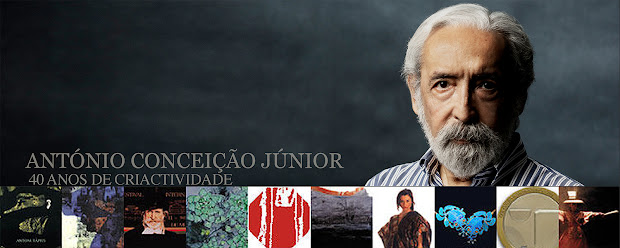JADE FIGURES - BY ANTONIO ARESTA

Macau History Researcher António Aresta
AUTHOR OF JADE FIGURES
ANTÓNIO CONCEIÇÃO JÚNIOR
António Conceição Júnior is one of the outstanding figures of the contemporary Portuguese cultural identity of Macau. The article “Time and Memory” clearly reveals part of its social and cultural genealogy around the important newspaper “Notícias de Macau”, still waiting to be digitized and studied, including its enormous and pioneering editorial activity. Here we find a good part of the cultural aristocracy of Macao, where his mother, Deolinda da Conceição, a journalist and writer of fine sensitivity and originality, presided. But within this small cosmos, we cannot forget Hermann Machado Monteiro, Domingos Rosa Duque, Adelino da Conceição, Mário de Abreu, Major Cabreira Henriques, António Maria da Conceição, Patrício Guterres, among others, figures who, with the exception of Luís Gonzaga Gomes, have unfairly slipped into a footnote in Macao's social history. The time of uncertainty and indifference in which we live does not seem to welcome a hermeneutics that values biographical events of great moral and educational elevation.
António Conceição Júnior, a cultured, informed and originally multifaceted spirit, writer, painter, engraver, photographer, fashion designer, directed the Luís de Camões Museum and the Recreational and Cultural Services of the Leal Senado de Macau where he curated a good dozens of large temporary exhibitions of art or of an ethno-anthropological nature, thus bringing an enviable cosmopolitanism to the city. This represents very well the living example of sharing the sensible, in the aesthetic perspective that Jacques Rancière coined. The soul of an artist is present in all parts of his life, including the classes on Religion and Morals, taught by Father Manuel Teixeira at Liceu de Macau, and where he recalls with irreverent humour, “he distributed saints pictures and I caricatures”.
The cultural history of Macao requires border knowledge and one that investigates the complexity of its ideography in order to free itself from some egotism of the discoveries and an apparent precious mining of scholastic junk, hitchhiked on the Ship from India. The intellectual legacy of Manuel da Silva Mendes goes in this direction, posing high-sounding questions that make political power tremble and opening up to different passions, around art, philosophy or ethics in city governance, always with freedom as the horizon. Then, as we are in a Luso-Chinese or Sino-Portuguese space, António Conceição Júnior has the courage to say, in the important volume “Conversations of Tea and Coffee”, published in 2011, “until today reading about Chinese philosophy was subordinated, at least here in China, to the conceptual perspective of traditional Western metaphysics. Little importance seems to be given to philosophical and historical interpretation, in an entirely Chinese perspective of time”. Now, time in Saint Augustine or time in Bergson is governed by other parameters of interiority that are not compatible with the Chinese world. It seems that our presence is superficial and that we are entangled in the contradictory anguish of losing ourselves, among mother-of-pearl sensations, almost a resignation of spirit in the face of another powerful metaphysics of everyday life. Father Benjamim Videira Pires noted that “The Extremes Conciliate”, in fact the title of one of his great books, published in 1988, but we all know how intricate and ambiguous this path is, which often escapes the narrator. Holderlin warned us that salvation always went hand in hand with perdition, thus founding a new version of the anthropology of vulnerability.
This book is important on several levels.
First, as an exercise in humility and modesty: “Not all texts are born for literature, because that is neither its purpose nor its nature. They are labor texts, works. Above all, they serve to reveal urban insufficiencies, offering solutions and, thus, aiming for the city to better qualify”. It is on this transcendental platform that reasoning lights up, chimeras stir and contradictory experiences are recycled.
Secondly, it is an exercise in courageous, cultured, up-to-date citizenship with a sympathetic power of contagion. Will it be able to create a discipleship in a land far from the exercise of freedom of expression? This is, perhaps, the best part of the Manuel da Silva Mendes 'school' in Macau: “Macau does not have a widespread, multi-lingual elite (...) It is the development of the collective, of the qualification of the city as an inhabited whole and habitable, which impels me to defend full citizenship, the quality and criteria that can only exist when it is understood, through culture, that the economy has to be seen as a creative and not a speculative force”. The legitimacy of a sovereignty also involves the construction of new referential concepts. ‘The Domestication of Being’, by Peter Sloterdijk traces this path, allowing the escape of dangerously illuminated truths.
Third it is a border book. It is unevenly divided between philosophical anthropology, political science, the literature of ideas and urban thought: “I wonder who built the Teatro D. Pedro V. ? Who built the beautiful library in the old Leal Senado? Furniture made of rosewood, blackwood or Huang hua li, in Chinese or Western style, is no longer manufactured in Macao. Also the generations of masters, formerly trained in Salesian schools, were replaced by unprepared masters, following the corrupt dictates of the sifu. Everything becomes disposable. The city asks for quality and tranquillity, but demands frantic speed, and offers noise, pollution and confusion, also aesthetically”.
To these concerns come other older ones, but no less metaphysical. I recall the words of António Conceição Júnior in the preface to the fourth edition of “Cheong Sam (A Cabaia)”, by Deolinda da Conceição: “Even if we are ignored, we do not cease to exist. Existing is our strength. We were and are those who legitimized the Portuguese presence”. This ethically perfect reflection, within the limits of power and reason, should have been the turning of a new page of philosophical thought in Macao, without any discourtesy towards other attempts. But it was just an identity tag that some cling to.
Civic education is not just a spiritual need, it is a real, cultural, civilizational and urban need: “A Corps of Civic Supervisors are sorely needed, with skills to prevent uncivilized behavior, filth, dirt, and all kinds of transgressions that disturb order and are configured as a complement to the teaching to be done”, because the problems lie in the details: “It is the result of a mostly anachronistic schooling, where no one has read the Classics, giving rise to a narrow and retrograde view, repressed and, thus, stripped of humanizing values that a more advanced formation in the teachings of Confucius would provide”. As for the Classics, it never hurts to remember that Pedro Nolasco da Silva brought the “Amplification of the Holy Decree”, Manuel da Silva Mendes presented Lao Tse and Chuang Tse and Luís Gonzaga Gomes the “Classic of Filial Piety”. With what intention will they have been read?
The tragic and irrational dimension appears everywhere, in all places, where the will to power seems to be against the values of the spirit. For this reason, António Conceição Júnior tells us: "Words are left scattered on the floor, waste of lives from the suburbs of so many places painted with silence, as obvious as the omissions practiced by people who live openly inside golden aquariums, bubbling inconclusive intentions".
I summon Agustina Bessa-Luís, in her “Dicionário Imperfeito”, to close these lines: “The Portuguese language, iron of branding ideas, like a herd loose in the field, must be used as a miracle and as wisdom”. And that's exactly what António Conceição Júnior did.
In updating the monumental “Literary Delta of Macau”, José Carlos Seabra Pereira will have to accommodate this new aesthetic, multidisciplinary, urban and cosmopolitan affluent, which transcends the limits of traditional Macauology like no other.


Comentários
Enviar um comentário